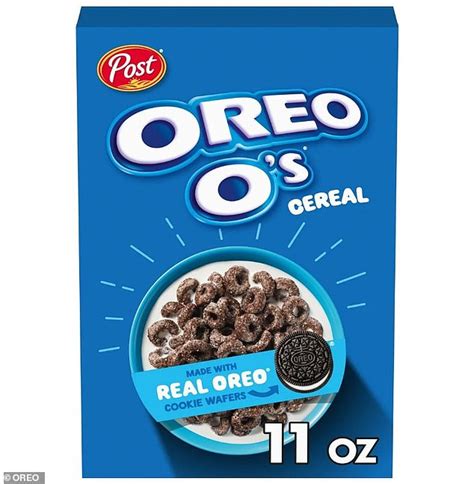
Kellogg’s decision to discontinue several popular cereal flavors, including Raisin Bran Toasted Oats, Honey Nut Frosted Flakes, and Frosted Mini Wheats Blueberry, has sparked outrage and disappointment among loyal consumers. The move, ostensibly to streamline production and focus on core offerings, has been met with petitions, social media campaigns, and widespread calls for the company to reconsider.
Cereal enthusiasts are voicing their displeasure across various platforms after Kellogg’s announced it would be retiring a number of its beloved breakfast staples. The decision, impacting flavors from established lines such as Raisin Bran, Frosted Flakes, and Frosted Mini Wheats, has triggered a wave of nostalgia and frustration. According to a company statement, the move is intended to “ensure we are meeting consumer needs” and “focusing on proven winners.” However, many consumers feel precisely the opposite is happening.
Kellogg’s, in response to mounting criticism, defended its strategy, stating that the decision was made after careful consideration of consumer preferences and sales data. “We periodically evaluate our portfolio to ensure we are meeting consumer needs,” a Kellogg’s spokesperson said. “After a thorough review, we have decided to discontinue a limited number of products.” The company emphasized that it remains committed to providing a wide variety of cereal options and will continue to innovate and introduce new products to the market. However, this reassurance has done little to quell the anger of fans who feel their favorite cereals are being unfairly targeted.
The discontinued cereals include Raisin Bran Toasted Oats, a variation of the classic Raisin Bran that offered a lighter, more textured alternative; Honey Nut Frosted Flakes, a popular twist on the iconic Frosted Flakes; and Frosted Mini Wheats Blueberry, which provided a fruity complement to the traditional shredded wheat biscuits. These cereals, while not Kellogg’s top sellers, had a dedicated following that appreciated their unique flavors and textures.
One of the main points of contention is the lack of transparency surrounding the decision-making process. Many consumers feel that Kellogg’s has not adequately explained why these particular cereals were chosen for discontinuation. Some speculate that it is simply a cost-cutting measure, while others suggest that it may be related to supply chain issues or changing consumer preferences. Whatever the reason, the lack of clear communication has only fueled the sense of betrayal among loyal customers.
The impact of this decision extends beyond mere disappointment. For some, these cereals represent a cherished part of their childhood or a comforting daily ritual. The loss of these familiar flavors can evoke a sense of nostalgia and loss. Furthermore, the discontinuation of these products may disproportionately affect consumers with dietary restrictions or preferences. For example, Raisin Bran Toasted Oats may have been a preferred option for those seeking a lower-sugar or higher-fiber cereal.
The consumer backlash has been particularly vocal on social media, with hashtags such as #SaveRaisinBranToastedOats and #BringBackHoneyNutFrostedFlakes trending on Twitter and Facebook. Numerous online petitions have been launched, urging Kellogg’s to reconsider its decision. These petitions have garnered thousands of signatures, demonstrating the depth of feeling among cereal fans.
Beyond individual consumers, the discontinuation of these cereals also raises broader questions about the future of the cereal industry. In recent years, cereal consumption has declined as consumers have increasingly turned to alternative breakfast options such as yogurt, smoothies, and breakfast bars. This trend has put pressure on cereal manufacturers to innovate and adapt to changing consumer tastes. However, some argue that Kellogg’s decision to discontinue these popular flavors is a step in the wrong direction, as it may alienate loyal customers and further accelerate the decline of the cereal category.
The situation also highlights the power of consumer activism in the digital age. Social media has provided a platform for consumers to voice their concerns and organize collective action. Companies are increasingly sensitive to public opinion and may be more likely to respond to consumer demands if they perceive a significant risk to their reputation or bottom line.
Kellogg’s faces a challenging balancing act. On the one hand, it needs to streamline its operations and focus on its most profitable products. On the other hand, it must avoid alienating loyal customers and damaging its brand image. The company’s response to the consumer backlash will be closely watched by the food industry and could set a precedent for how companies handle similar situations in the future. The decision to axe these beloved cereals has not only stirred up the breakfast bowls of countless consumers but has also sparked a wider conversation about brand loyalty, corporate responsibility, and the enduring power of a good bowl of cereal. Kellogg’s next moves will determine whether they can successfully navigate this PR storm and maintain their position as a leading cereal manufacturer.
The long-term implications of Kellogg’s decision remain to be seen. While the company may initially benefit from increased efficiency and reduced costs, it could also suffer reputational damage and lose market share if it fails to address consumer concerns. The future of these discontinued cereals, and the broader cereal industry, may depend on Kellogg’s ability to listen to its customers and adapt to changing consumer preferences. The cereal aisle is not just a place of breakfast choices; it’s a battleground for brand loyalty, nostalgia, and the ever-evolving tastes of the American consumer.
In-Depth Analysis and Expanded Context:
The cereal industry has faced significant challenges in recent years, contributing to Kellogg’s decision to streamline its product offerings. Shifting consumer preferences, increased competition from alternative breakfast options, and rising ingredient and production costs have all played a role in reshaping the landscape. A deeper dive into these factors provides context for understanding Kellogg’s strategy and the consumer reaction it has provoked.
Shifting Consumer Preferences:
One of the most significant challenges facing the cereal industry is the changing breakfast habits of consumers. In the past, cereal was a staple of the American breakfast, offering a quick, convenient, and affordable option for families. However, in recent years, consumers have increasingly turned to alternative breakfast options that are perceived as healthier, more convenient, or more appealing.
Yogurt, smoothies, breakfast bars, and overnight oats have all gained popularity as breakfast choices, offering a wider range of flavors, textures, and nutritional profiles. These options often appeal to health-conscious consumers who are looking for lower-sugar, higher-protein, or gluten-free alternatives to traditional cereals.
The rise of these alternative breakfast options has put pressure on cereal manufacturers to innovate and adapt to changing consumer tastes. Some companies have responded by introducing new cereal varieties with added protein, fiber, or whole grains. Others have focused on marketing their cereals as a convenient and nostalgic option for busy families.
Increased Competition:
The cereal industry is also facing increased competition from private-label brands and smaller, niche manufacturers. Private-label brands, which are often sold at lower prices than national brands, have gained market share in recent years as consumers have become more price-sensitive. Smaller manufacturers have also carved out a niche by offering unique and innovative cereal varieties that cater to specific dietary needs or preferences.
This increased competition has made it more difficult for established cereal manufacturers like Kellogg’s to maintain their market share. To compete effectively, companies need to invest in product development, marketing, and distribution. They also need to be responsive to changing consumer tastes and preferences.
Rising Costs:
Another challenge facing the cereal industry is the rising cost of ingredients and production. The prices of key ingredients such as wheat, corn, and sugar have fluctuated significantly in recent years, putting pressure on manufacturers to increase prices or reduce costs. Production costs have also increased due to rising energy prices, labor costs, and transportation costs.
These rising costs have made it more difficult for cereal manufacturers to maintain their profit margins. To cope with these challenges, companies have implemented various cost-cutting measures, such as streamlining their production processes, reducing their marketing budgets, and discontinuing less profitable products.
Kellogg’s Strategy:
Kellogg’s decision to discontinue several popular cereal flavors is part of a broader strategy to streamline its operations and focus on its most profitable products. The company believes that by simplifying its product portfolio, it can reduce costs, improve efficiency, and better meet the needs of its core customers.
This strategy is not without its risks. By discontinuing popular flavors, Kellogg’s risks alienating loyal customers and damaging its brand image. The company needs to carefully balance the benefits of cost-cutting with the potential negative impact on its reputation and market share.
Kellogg’s has attempted to mitigate these risks by emphasizing its commitment to innovation and new product development. The company has announced plans to introduce new cereal varieties in the coming months and years, and it has invested heavily in marketing and advertising to promote its core brands.
The Consumer Reaction:
The consumer reaction to Kellogg’s decision to discontinue several popular cereal flavors has been overwhelmingly negative. Many consumers have expressed their disappointment and anger on social media, and numerous online petitions have been launched urging the company to reconsider its decision.
The consumer backlash highlights the importance of brand loyalty and the emotional connection that people have with their favorite foods. For many consumers, cereal is not just a breakfast option; it is a source of comfort, nostalgia, and personal identity. The loss of these familiar flavors can evoke a sense of loss and betrayal.
The consumer reaction also underscores the power of social media in the digital age. Social media has provided a platform for consumers to voice their concerns and organize collective action. Companies are increasingly sensitive to public opinion and may be more likely to respond to consumer demands if they perceive a significant risk to their reputation or bottom line.
The Future of Cereal:
The future of the cereal industry is uncertain. While the industry faces significant challenges, it also has opportunities to innovate and adapt to changing consumer tastes. Cereal manufacturers that can successfully navigate these challenges may be able to maintain their market share and even grow their business.
To succeed in the long term, cereal manufacturers need to focus on several key areas:
- Innovation: Companies need to continue to innovate and introduce new cereal varieties that meet the evolving needs and preferences of consumers. This includes developing cereals with added protein, fiber, or whole grains, as well as cereals that cater to specific dietary needs or preferences.
- Marketing: Companies need to invest in marketing and advertising to promote their core brands and communicate the benefits of cereal to consumers. This includes highlighting the convenience, affordability, and nutritional value of cereal.
- Sustainability: Companies need to address concerns about the environmental impact of cereal production and packaging. This includes reducing waste, using sustainable ingredients, and promoting sustainable farming practices.
- Engagement: Companies need to engage with consumers on social media and other platforms to build relationships and gather feedback. This includes responding to consumer concerns, addressing complaints, and soliciting ideas for new products and improvements.
By focusing on these key areas, cereal manufacturers can position themselves for success in the years to come. The cereal aisle may be changing, but it is not going away anytime soon.
Impact on Kellogg’s Reputation:
The decision to discontinue beloved cereal flavors has undoubtedly impacted Kellogg’s reputation, at least in the short term. The consumer backlash, amplified through social media, presents a significant public relations challenge. While the company attempts to frame the move as a strategic effort to streamline operations and focus on core products, many consumers perceive it as a cost-cutting measure that disregards their preferences and brand loyalty.
The long-term effects on Kellogg’s reputation will depend on how the company responds to the criticism and whether it can effectively communicate its rationale to consumers. A transparent and empathetic approach could help to mitigate the damage and rebuild trust. Conversely, a dismissive or defensive response could further alienate consumers and damage the company’s brand image.
The situation highlights the increasing importance of corporate social responsibility and consumer engagement in today’s business environment. Companies are no longer judged solely on their financial performance but also on their ethical behavior and their responsiveness to consumer concerns. Kellogg’s, as a major player in the food industry, has a responsibility to consider the broader impact of its decisions on consumers, employees, and the environment.
The Role of Nostalgia:
Nostalgia plays a significant role in the consumer reaction to the discontinuation of these cereal flavors. For many people, cereal is associated with fond memories of childhood, family breakfasts, and simpler times. The loss of these familiar flavors can evoke a sense of loss and disappointment, particularly for those who have been loyal consumers of Kellogg’s products for many years.
Companies often leverage nostalgia in their marketing campaigns, appealing to consumers’ emotional connections with their brands. However, when companies discontinue products that evoke strong nostalgic feelings, they risk alienating their most loyal customers. Kellogg’s needs to be mindful of the emotional impact of its decisions and consider ways to preserve the nostalgic appeal of its brands while still adapting to changing consumer tastes.
The Economic Implications:
The discontinuation of these cereal flavors has several economic implications. For Kellogg’s, the move is intended to improve efficiency and reduce costs. By simplifying its product portfolio, the company can streamline its production processes, reduce its inventory costs, and focus its marketing efforts on its most profitable products.
However, the decision also has potential negative economic consequences. The consumer backlash could lead to a decline in sales and market share. The company may also face increased scrutiny from regulators and consumer advocacy groups.
From a broader economic perspective, the discontinuation of these cereal flavors reflects the ongoing challenges facing the food industry. Rising costs, changing consumer preferences, and increased competition are forcing companies to make difficult decisions about their product portfolios. The long-term economic impact of these trends remains to be seen.
Comparison with Similar Situations:
The discontinuation of these cereal flavors is not an isolated incident. In recent years, numerous companies in various industries have faced similar situations, where decisions to discontinue products or services have sparked consumer outrage.
For example, in 2018, Coca-Cola discontinued its popular diet soda Tab, prompting a wave of nostalgia and disappointment among loyal consumers. Similarly, in 2020, General Mills discontinued its Yoplait Original yogurt in glass jars, sparking a similar reaction.
These situations highlight the challenges that companies face when making decisions about their product portfolios. Companies need to carefully weigh the potential benefits of cost-cutting and efficiency gains against the risk of alienating loyal customers and damaging their brand image.
Possible Future Scenarios:
Several possible scenarios could unfold in the coming months and years:
- Kellogg’s Reverses Course: Faced with sustained consumer pressure, Kellogg’s could decide to reverse its decision and bring back some or all of the discontinued cereal flavors. This would be a significant victory for consumer activism and could set a precedent for how companies handle similar situations in the future.
- Kellogg’s Sticks to Its Guns: Kellogg’s could decide to stick to its original decision and weather the consumer backlash. This would be a risky strategy, but the company may believe that the long-term benefits of cost-cutting outweigh the short-term reputational damage.
- Alternative Manufacturers Step In: Smaller cereal manufacturers could see an opportunity to capitalize on the consumer dissatisfaction and introduce their own versions of the discontinued cereal flavors. This could lead to increased competition in the cereal market and provide consumers with more choices.
- The Cereal Category Continues to Decline: The discontinuation of these cereal flavors could further accelerate the decline of the cereal category as a whole. Consumers may increasingly turn to alternative breakfast options, further eroding the market share of traditional cereal manufacturers.
The outcome of this situation will depend on a variety of factors, including the intensity of the consumer backlash, Kellogg’s response, and the actions of competitors.
FAQ:
1. Which Kellogg’s cereals are being discontinued?
Kellogg’s is discontinuing Raisin Bran Toasted Oats, Honey Nut Frosted Flakes, and Frosted Mini Wheats Blueberry.
2. Why is Kellogg’s discontinuing these cereals?
According to Kellogg’s, the decision is part of a broader strategy to “ensure we are meeting consumer needs” and “focusing on proven winners” by streamlining their product portfolio.
3. How have consumers reacted to this news?
The consumer reaction has been largely negative, with many expressing disappointment and anger on social media. Online petitions have been created to urge Kellogg’s to reconsider.
4. Will Kellogg’s bring back the discontinued cereals?
As of now, Kellogg’s has not indicated plans to bring back the cereals. However, the level of consumer backlash could influence future decisions.
5. What are the alternatives if I can’t find these cereals anymore?
Consumers could try other varieties of Raisin Bran, Frosted Flakes, and Frosted Mini Wheats. Alternatively, they could explore cereals from other brands that offer similar flavors and textures.









